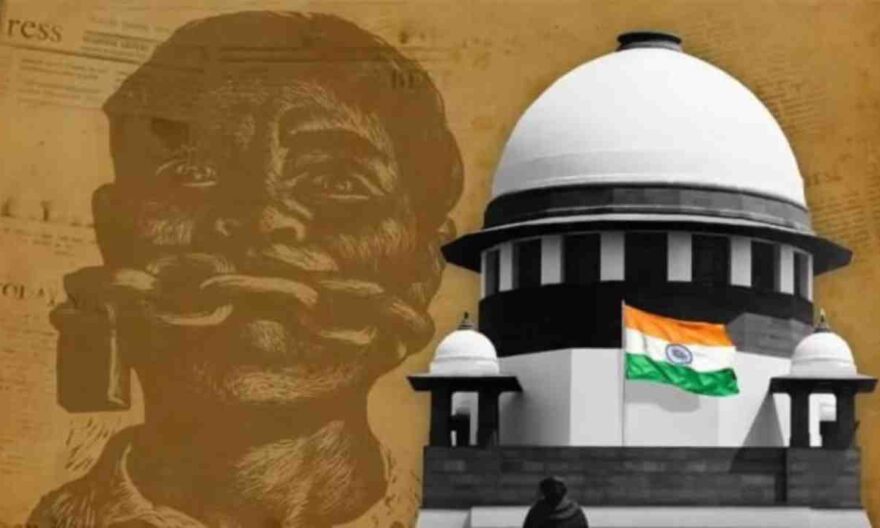
The Supreme Court on Tuesday referred a batch of pleas challenging the constitutional validity of the colonial-era sedition provision in the Indian Penal Code (IPC) to a constitution bench comprised of a minimum of five judges.
A bench comprising Chief Justice D Y Chandrachud, Justice JB Pardiwala, and Justice Manoj Misra, rejected the Centre’s request to delay the reference to a larger bench, citing Parliament’s ongoing process of re-enacting the penal code’s provisions.
The bench has directed the Supreme Court registry to present the case documents to the Chief Justice for consideration on the administrative front, with the aim of forming a bench comprising of “at least five judges.”
On May 1, the Supreme Court had deferred the hearing on these pleas after the Centre indicated that it was in an advanced stage of consultation regarding the re-examination of the penal provision.
On August 11, in a significant effort to revamp colonial-era criminal laws, the Centre introduced three bills in the Lok Sabha to replace the IPC, CrPC (Code of Criminal Procedure), and the Indian Evidence Act. Among the proposed changes was the repeal of the sedition law and the introduction of a new provision with a broader definition of the offense.
On May 11, 2022, the Apex Court had put a hold on the sedition penal law until an “appropriate” government body re-evaluated it. The court had directed the Centre and the states not to register any new FIRs invoking the sedition provision. Additionally, ongoing investigations, pending trials, and all proceedings related to the sedition law nationwide were put on hold.
The sedition law, found in section 124A of the IPC, which prescribes a maximum life imprisonment term for fostering “disaffection towards the government,” was incorporated into the penal code in 1890, 57 years prior to India’s independence and nearly three decades after the IPC’s enactment.




